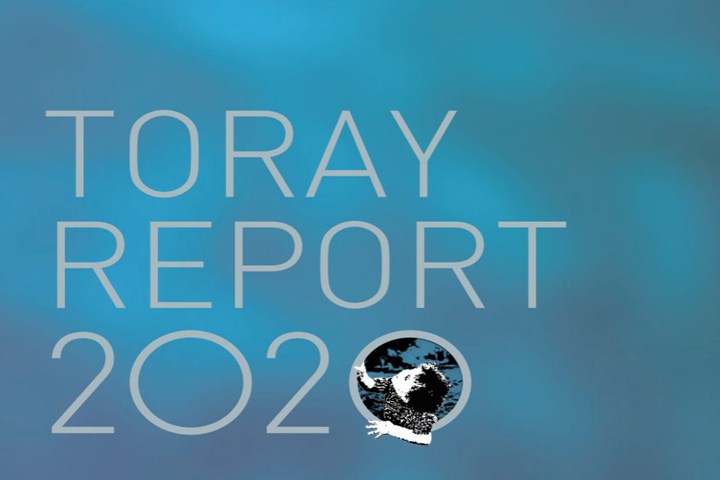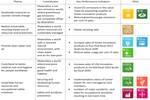Toray annual report anticipates subpar earnings until 2022
Although Toray’s carbon fiber and composite materials segment showed growth in fiscal 2019, pandemic-driven headwinds in fiscal 2020 are steering the company toward wind, UAM and energy-related markets.

Photo Credit: Toray Industries
An Integrated Annual Report 2020 issued by Toray Industries Inc. (Tokoyo, Japan) on Oct. 16 presents the Toray Group’s financial results for the company’s fiscal year 2019, which ended on March 31, 2020 (prior to the full onset of the coronavirus pandemic).
According to the report, Toray’s carbon fiber and composite materials segment in 2019 showed revenue of ¥236.9 billion ($2.27 billion USD) with ¥21 billion ($200.9 million USD) in operating income. 2018 revenue was ¥215.9 billion ($2.06 billion USD) with ¥11.5 billion ($110 million USD) in operating income.
Overall, the Group projects a return to a path for growth in the carbon fiber and composites market around 2022, followed by expansion through 2030 at a CAGR of around 8%.
Toray also notes that the company’s fiscal 2020 outlook indicates lower production volumes in commercial aerospace applications and decreased automotive-related demand due to the impact of the COVID-19 pandemic. Because of this, Toray says it plans to enhance sales of its carbon fibers in the wind energy, urban air mobility (UAM) and energy-related (fuel cell vehicles and pressure vessels) industries.
“Carbon fibers for wind turbine blades, anticipated as a new growth driver, are projected to grow at a CAGR of 13% during ‘AP-G 2022,’ [Toray’s name for forecast period],” notes the report. “The lengths of wind turbine blades are being extended as the most effective way of increasing wind power generation efficiency, so the adoption of light weight, highly rigid carbon fiber-reinforced plastic (CFRP) blades is accelerating.”
With mass production of fuel cell vehicles (FCVs) expected to begin around 2021 and onward, Toray Group also foresees accelerating growth in demand for extra-high pressure tanks suited to hydrogen fuel refilling, and a rising demand in high-performance aircraft, particularly air taxis, large drones and “flying cars.”
Related Content
-
Combining multifunctional thermoplastic composites, additive manufacturing for next-gen airframe structures
The DOMMINIO project combines AFP with 3D printed gyroid cores, embedded SHM sensors and smart materials for induction-driven disassembly of parts at end of life.
-
Otto Aviation launches Phantom 3500 business jet with all-composite airframe from Leonardo
Promising 60% less fuel burn and 90% less emissions using SAF, the super-laminar flow design with windowless fuselage will be built using RTM in Florida facility with certification slated for 2030.
-
First Airbus A350 crash confirmed in Haneda
Shortly after touch-down, a JAL A350-900 aircraft recently collided with a De Havilland Canada Dash 8. Exact circumstances are still unknown.
















